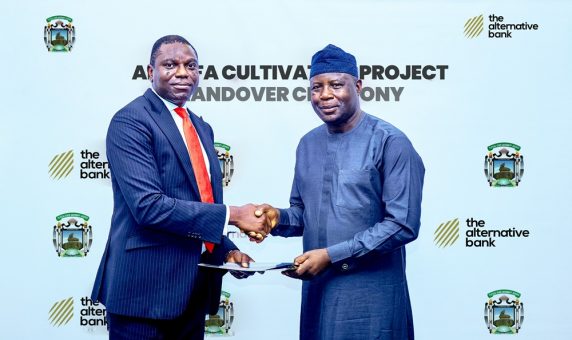By Atoyebi Nike
The Alternative Bank has handed over a large farm to Plateau State University (PLASU) to support alfalfa production and livestock feed innovation. The initiative aims to reduce feed shortages, empower youth and women, and address pastoral conflict.
Unveiled during a visit to the Bokkos-based university, the project is part of the Alfalfa Project, backed by the bank’s non-interest finance model. It prioritizes impact-driven investment and partnerships that promote sustainable food systems.
Gbenga Awe, Group Head at the bank, said the model allows direct investment in projects with social and economic value. “This isn’t just about growing alfalfa. It’s about building a self-sustaining ecosystem,” he said.
Licensed two years ago, the bank avoids traditional loans. Instead, it funds feasible ideas through profit-and-loss sharing with credible partners.
Awe praised PLASU’s ambition, citing the school’s 10-ton per hectare yield target. He also noted the bank’s investment in key infrastructure for the farm.
PLASU Vice Chancellor, Prof. Shedrach Best, welcomed the project. He said Bokkos has a long history in livestock development. “We’ve had dairy farms and training centres for decades. This project continues that legacy,” he said.
He added the school had fixed early challenges with water supply to ensure success.
Richard Mbaram, an adviser to the Federal Ministry of Livestock Development, called the initiative a model for national transformation. He linked it to a new presidential program supporting youth and women in livestock.
“Alfalfa can reduce migration, improve feed availability, and ease farmer-herder tension,” Mbaram said. “This is about food security, peace, and climate resilience.”


